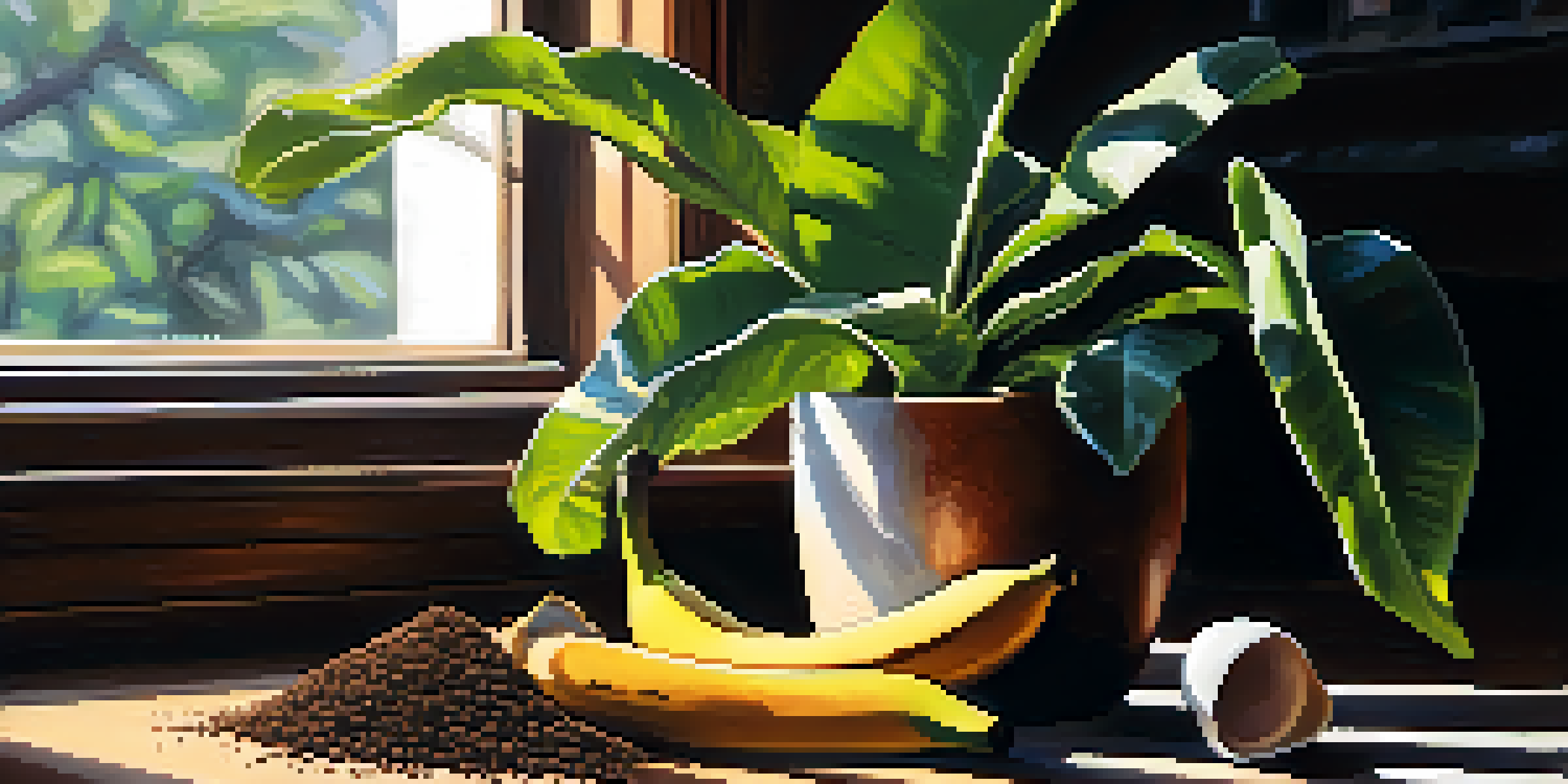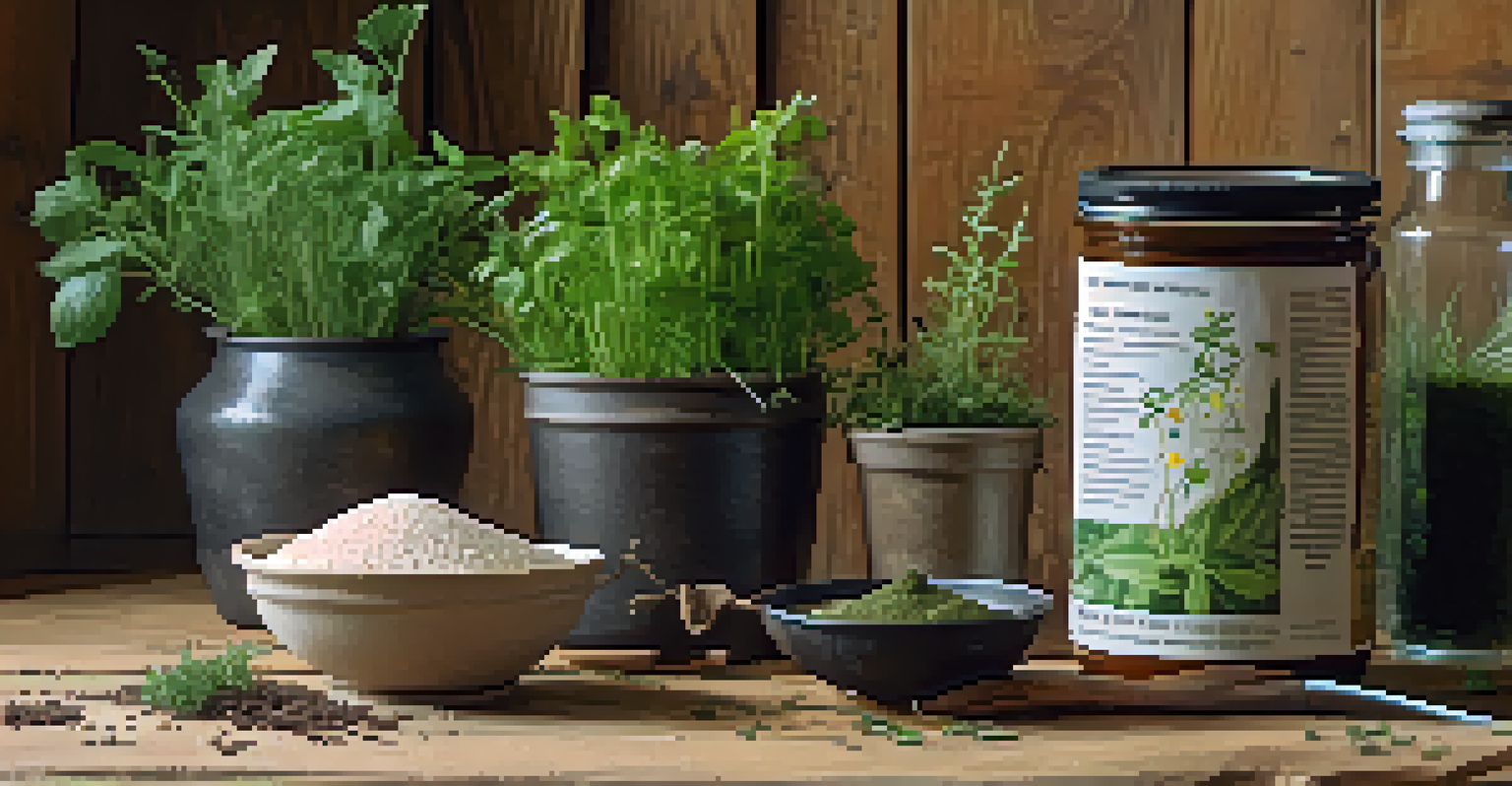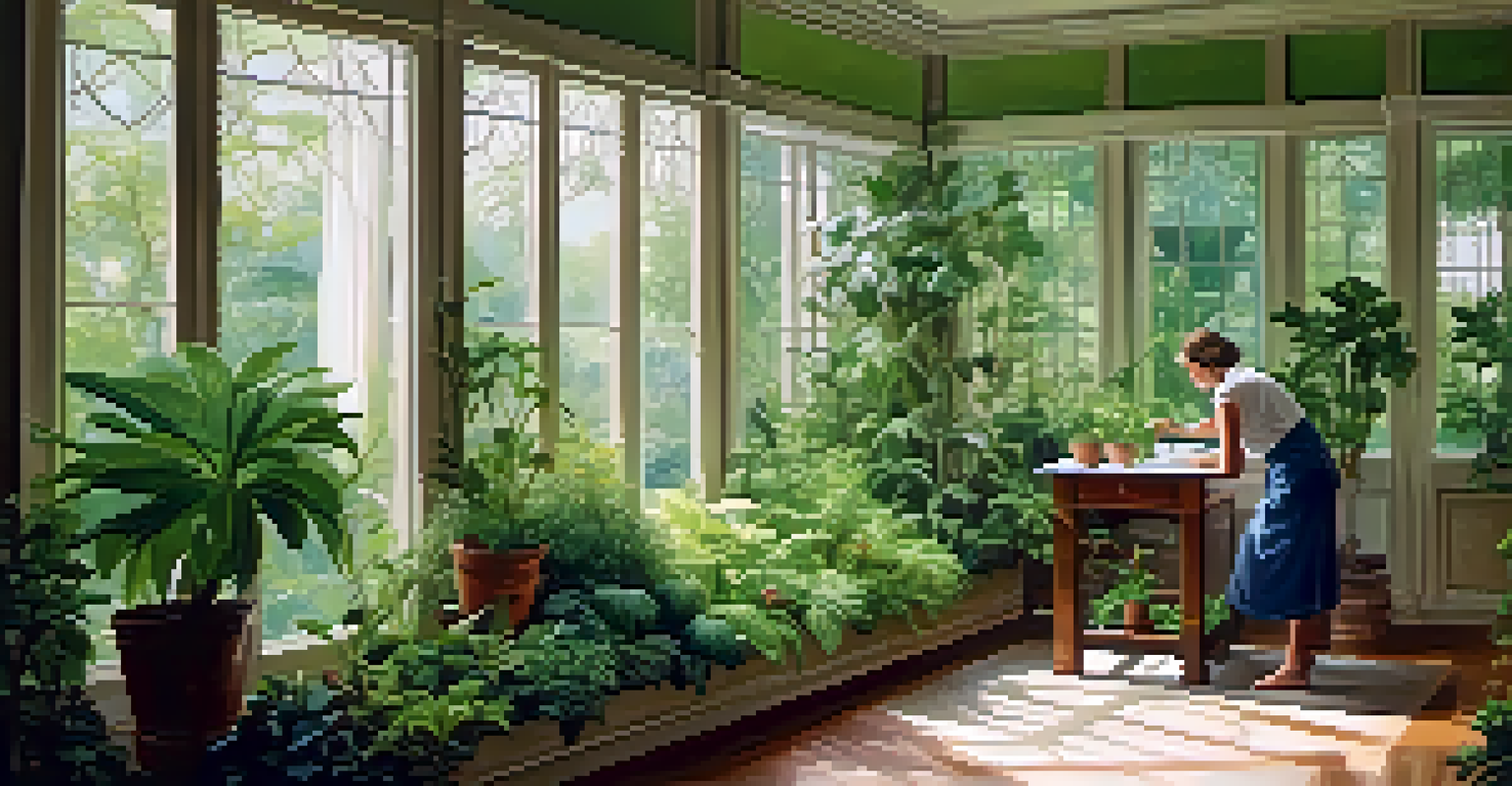DIY Indoor Plant Fertilizers: Natural Recipes You Can Make

Why Use Natural Fertilizers for Indoor Plants?
Using natural fertilizers is a fantastic way to care for your indoor plants. They provide essential nutrients without the harsh chemicals found in many commercial options. By opting for natural solutions, you're not only nurturing your plants but also creating a healthier indoor environment for yourself and your family.
The greatest threat to our planet is the belief that someone else will save it.
Natural fertilizers improve soil health, promoting a vibrant ecosystem for beneficial microorganisms. These microorganisms help break down nutrients, making them more accessible for your plants. When your plants thrive, you'll notice healthier leaves, brighter blooms, and even increased growth rates.
Plus, making your own fertilizers can save you money and reduce waste. Instead of tossing out kitchen scraps, you can transform them into nutrient-rich solutions, turning your home into a sustainable oasis. It's a win-win for both your plants and the planet!
Banana Peel Fertilizer: Potassium Powerhouse
Banana peels are packed with potassium, a key nutrient that helps promote flowering and fruiting in plants. To make your own banana peel fertilizer, simply chop up the peels and let them soak in water for about 48 hours. This creates a nutrient-rich liquid that you can use to water your indoor plants.

The best part is that it's incredibly easy and requires minimal effort. Once the soaking period is over, just strain the mixture and use it as a watering solution. Your plants will soak up the potassium, leading to healthier growth and vibrant blooms.
Natural Fertilizers Enhance Growth
Using natural fertilizers boosts plant health and creates a healthier indoor environment.
Additionally, using banana peels helps reduce kitchen waste, making it an eco-friendly choice. Instead of tossing those peels in the trash, you're giving them a second life as a fantastic fertilizer. It's a simple yet effective way to nourish your indoor garden sustainably.
Coffee Grounds: A Boost for Acid-Loving Plants
Coffee grounds are another excellent option for indoor plants, especially those that thrive in acidic soil like azaleas and blueberries. They not only add nutrients but also improve soil structure, promoting better drainage and aeration. Plus, your morning brew can actually benefit your garden!
Gardening adds years to your life and life to your years.
To use coffee grounds, simply sprinkle them on top of the soil or mix them into your potting mix. This will enrich the soil with nitrogen, phosphorus, and potassium, essential for plant health. Just remember to use them in moderation, as too many grounds can lead to compaction and affect water retention.
And if you’re concerned about odor, don't worry! When used appropriately, coffee grounds won't smell bad and can even deter pests. It's a great way to recycle your coffee waste while giving your plants the nutrients they crave.
Eggshell Fertilizer: Calcium-Rich Solution
Eggshells are a fantastic source of calcium, which is vital for strong cell walls and overall plant health. To make eggshell fertilizer, rinse the shells to remove any residue, then dry them out. Once they're completely dry, crush them into a fine powder and sprinkle it onto the soil of your indoor plants.
Calcium can help prevent blossom end rot in plants like tomatoes and peppers, ensuring they grow strong and healthy. By incorporating eggshells into your plant care routine, you're providing a slow-release source of this essential nutrient.
Kitchen Scraps Reduce Waste
Transforming kitchen scraps into fertilizers not only nourishes plants but also promotes sustainability.
Plus, using eggshells is a great way to recycle materials from your kitchen. Rather than tossing them out, you're giving them a new purpose and benefiting your indoor garden at the same time. It's a simple step towards more sustainable gardening.
Compost Tea: Liquid Gold for Your Plants
Compost tea is a nutrient-rich liquid made from steeping compost in water. It's like a superfood for your plants, packed with beneficial microbes and nutrients that help them thrive. To make compost tea, fill a container with water and add some well-aged compost, letting it steep for a few days.
This method allows nutrients to leach into the water, creating a potent liquid fertilizer. When you strain and dilute the tea, you have a fantastic solution to water your indoor plants. It’s a great way to promote soil health and stimulate plant growth without any harsh chemicals.
Not only does compost tea nourish your plants, but it also boosts beneficial microorganisms in the soil. This can lead to healthier plants and a more vibrant indoor garden. Plus, it's an excellent way to recycle your compost, making it a sustainable choice for any indoor gardener.
Molasses: Sweet Treat for Your Soil
Molasses is not just for baking; it can be a fantastic addition to your plant care routine! This natural sugar source provides energy for beneficial soil bacteria, enhancing microbial activity in your potting mix. With increased microbial activity, your plants can absorb nutrients more effectively.
To use molasses as a fertilizer, mix one tablespoon of unsulfured molasses with a gallon of water and use it to water your plants. This sweet solution promotes healthy root development and boosts overall plant vigor. It's a simple and effective way to support your indoor garden.
DIY Fertilizers are Easy to Make
Creating your own fertilizers from common household items is simple and effective for thriving indoor gardens.
Additionally, molasses can help with soil structure, preventing compaction and improving drainage. By incorporating this sweet treat into your plant care regimen, you're not only feeding your plants but also nurturing the soil they grow in.
Epsom Salt: Magnesium Booster for Plants
Epsom salt, known for its soothing properties in baths, is also beneficial for indoor plants due to its high magnesium content. Magnesium plays a crucial role in photosynthesis, helping plants convert sunlight into energy. This can lead to greener leaves and more vigorous growth.
To use Epsom salt, dissolve one tablespoon in a gallon of water and apply it every month to your indoor plants. This simple solution can enhance the overall health of your plants, making them more resilient to stress and pests. It's a straightforward way to give your plants a little extra love.

Moreover, Epsom salt can help improve nutrient absorption, particularly when it comes to nitrogen and phosphorus. By ensuring your plants get the magnesium they need, you'll be on your way to a thriving indoor garden that flourishes beautifully.
Final Thoughts: Embrace DIY Fertilizers for Your Plants
Creating your own natural fertilizers is not only rewarding but also a fantastic way to nurture your indoor plants. By using everyday items from your kitchen, you can provide essential nutrients without breaking the bank. It's a simple yet impactful step towards a sustainable gardening practice.
As you experiment with these DIY recipes, you'll likely notice improvements in your plants' health and growth. Plus, the satisfaction of knowing you’re using eco-friendly methods adds an extra layer of joy to your gardening journey. Remember to observe your plants and adjust your care routine as needed.
So why not give these natural fertilizers a try? With a little creativity and effort, you can create a thriving indoor garden that brings beauty and life to your home. Embrace the joy of DIY gardening and watch your plants flourish!